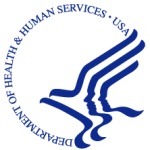- Industry: Government
- Number of terms: 33950
- Number of blossaries: 0
- Company Profile:
United States Department of Health and Human Services, Radiation Emergency Medical Management
A procedure in which drugs, vitamins, herbal extracts, or other fluids are injected into the body at an acupuncture point using a syringe and needle.
Industry:Health care
A substance that prevents cells from making or using progesterone (a hormone that plays a role in the menstrual cycle and pregnancy). Antiprogestins may stop some cancer cells from growing and they are being studied in the treatment of breast cancer. An antiprogestin is a type of hormone antagonist.
Industry:Health care
A swelling or feeling of fullness in the abdomen. Bloating is usually the result of gas in the intestines and can be caused by many things, including overeating, lactose intolerance, and constipation. Bloating can also be a side effect of cancer or cancer treatment.
Industry:Health care
An injection of ethanol (alcohol) through the skin directly into a tumor to kill cancer cells. Ultrasound or a CT scan is used to guide the needle into the tumor. Also called ethanol ablation, PEI, and percutaneous ethanol injection.
Industry:Health care
A substance that is being studied in the treatment of cancer. Atamestane blocks the production of the hormone estrogen in the body. It belongs to the family of drugs called antiestrogens.
Industry:Health care
A substance being studied in the treatment of cancer. Brivanib may prevent the growth of new blood vessels that tumors need to grow and may kill cancer cells. It is a type of vascular endothelial growth factor receptor 2 inhibitor and a type of antiangiogenesis agent.
Industry:Health care
A procedure in which mild electric currents are applied to certain acupuncture points (spots on the body where an acupuncture needle may be inserted to control pain and other symptoms) on the skin. It is being studied in the treatment of dry mouth caused by radiation therapy for cancer. Also called ALTENS.
Industry:Health care
A type of drug used to treat symptoms of psychosis. These include hallucinations (sights, sounds, smells, tastes, or touches that a person believes to be real but are not real), delusions (false beliefs), and dementia (loss of the ability to think, remember, learn, make decisions, and solve problems). Most antipsychotics block the action of certain chemicals in the nervous system. Also called antipsychotic agent and neuroleptic agent.
Industry:Health care
A tissue with red blood cells, white blood cells, platelets, and other substances suspended in fluid called plasma. Blood takes oxygen and nutrients to the tissues, and carries away wastes.
Industry:Health care
A chronic disease in which a person craves drinks that contain alcohol and is unable to control his or her drinking. A person with this disease also needs to drink greater amounts to get the same effect and has withdrawal symptoms after stopping alcohol use. Alcohol dependence affects physical and mental health, and can cause problems with family, friends, and work. Regular heavy alcohol intake increases the risk of several types of cancer. Also called alcoholism.
Industry:Health care
